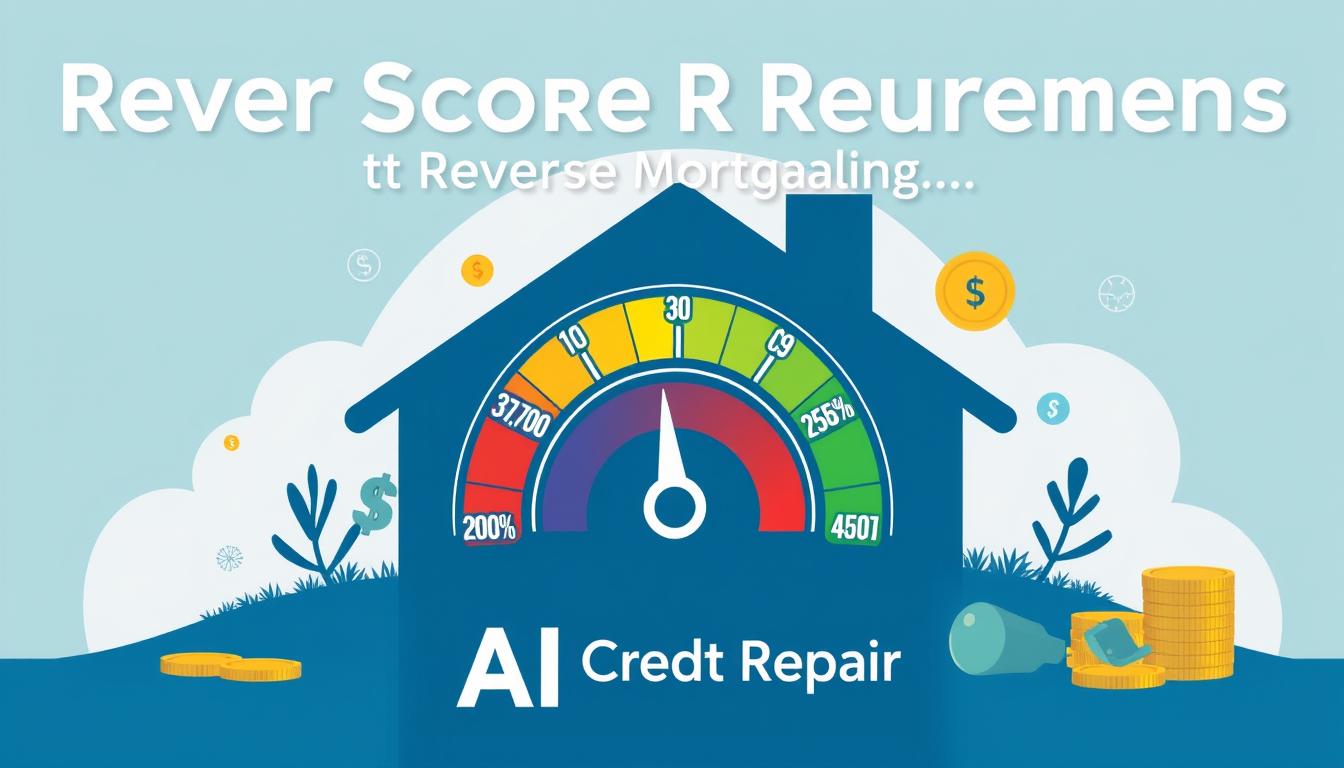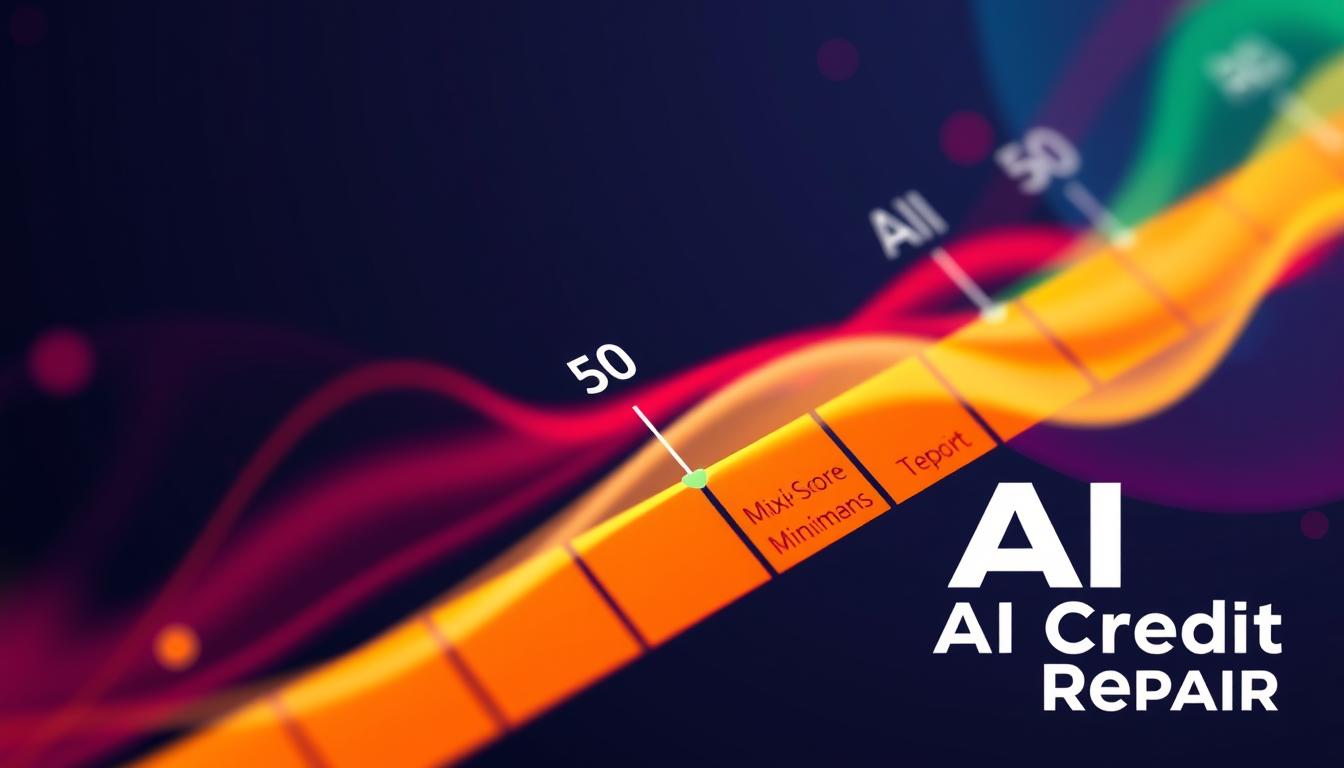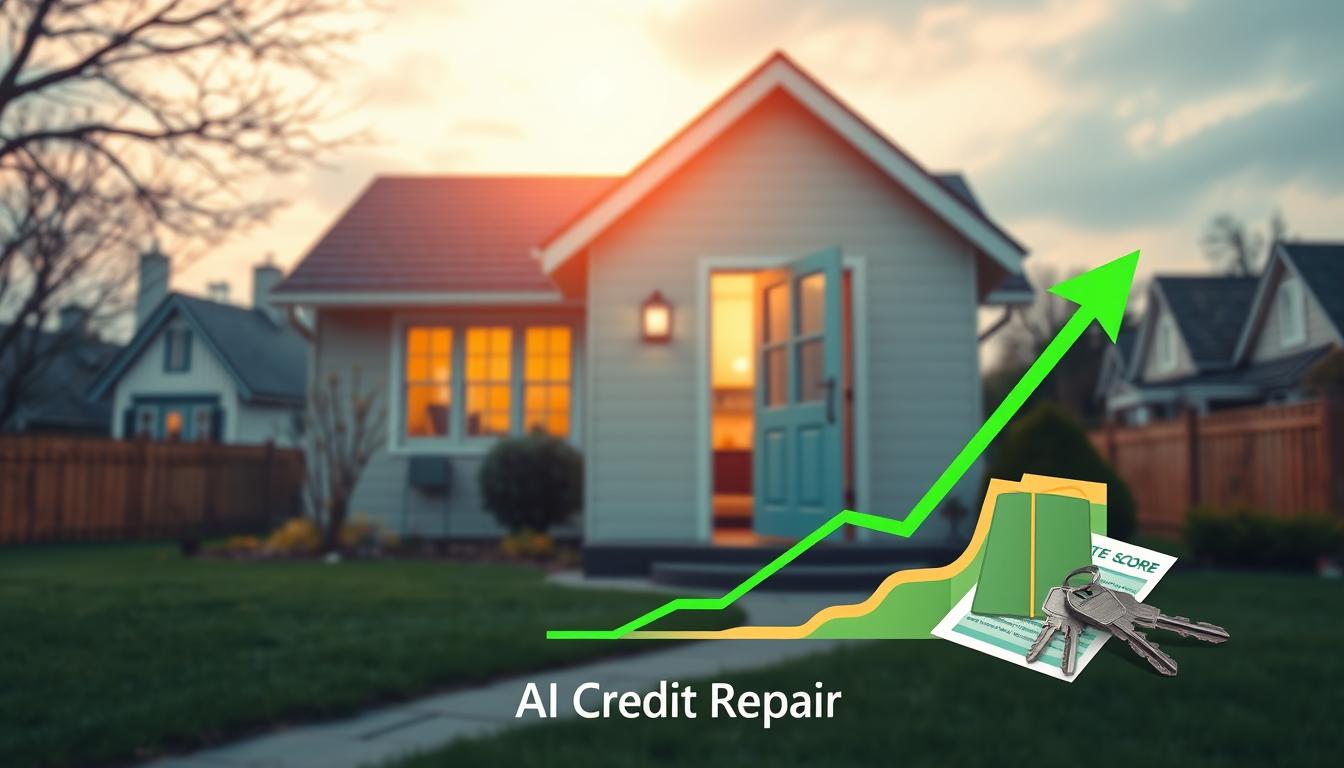A reverse mortgage can be a useful financial tool for retirees. It allows you to tap into your home’s equity and boost your income. However, qualifying for one depends on meeting certain credit score requirements.
Let’s explore these requirements and their impact on your application. We’ll also look at the pros and cons of reverse mortgages. Plus, we’ll share tips to improve your credit and boost your approval chances.
Key Takeaways
- Reverse mortgages have a minimum credit score requirement, typically around 580 or higher.
- Your credit history and payment history are important factors in determining your eligibility.
- Improving your credit score can increase your chances of getting approved for a reverse mortgage.
- Reverse mortgages can provide financial flexibility for senior homeowners, but they also come with potential drawbacks to consider.
- Exploring alternative options, such as home equity loans or downsizing, may be worth considering as well.
Understanding Reverse Mortgages
Reverse mortgages offer homeowners 62 and older access to their home’s equity. This loan provides supplemental income during retirement. It’s crucial to understand the pros and cons before choosing this option.
What Is a Reverse Mortgage?
A reverse mortgage converts home equity into cash. Unlike traditional mortgages, homeowners receive payments from the lender. The loan is repaid when the homeowner sells, moves, or passes away.
Benefits and Drawbacks of Reverse Mortgages
Reverse mortgages allow access to home equity without monthly payments. Funds can be used for any purpose. They may also delay the need to sell the home.
However, drawbacks include potential reduced home equity. Homeowners must continue paying property taxes and insurance. The application process can be complex.
Senior homeowners should carefully consider the advantages and disadvantages of reverse mortgages. Consulting a financial advisor helps determine if it’s the right solution.

Credit Score Requirements for Reverse Mortgages
Your credit score is vital for getting a reverse mortgage. It affects your eligibility and loan terms. Knowing the reverse mortgage credit score criteria helps you prepare better for the application process.
Reverse mortgages help senior homeowners access their home equity. Lenders have specific credit requirements for these loans. These criteria determine if you qualify.
Typical Credit Score Range for Approval
Most lenders need a minimum credit score of 580. This is the FHA’s threshold for reverse mortgages. Some lenders may require scores between 600 and 620.
Your credit score isn’t the only factor. Lenders also consider your financial history and home equity. These elements help determine your eligibility.
Credit History and Payment History
Lenders closely examine your credit and payment history. A strong record of on-time payments boosts your approval chances. Late payments, debt, or bankruptcy may hurt your eligibility.
Understanding credit score requirements for reverse mortgages is crucial. It helps you prepare better for the application process. This knowledge can increase your chances of approval.

Minimum Credit Score for a Reverse Mortgage
Lenders evaluate credit scores when considering reverse mortgage applications. Your credit score plays a key role in determining if you qualify. Seniors should know the minimum score needed to tap into their home equity.
Typical Credit Score Range for Approval
Most lenders prefer a typical credit score range of 600 to 700 for reverse mortgages. This range shows the creditworthiness lenders usually accept for these loans.
The minimum credit score for reverse mortgage approval can vary between lenders. Individual financial situations and other factors also affect approval chances. Some lenders may consider lower scores, while others have stricter rules.
| Credit Score Range | Reverse Mortgage Eligibility |
|---|---|
| 600-700 | Generally Acceptable |
| Below 600 | May Still Be Considered |
| Above 700 | Ideal for Approval |
Seniors should understand the typical Credit Score Range for approval. Improving your credit score can boost your chances of getting a reverse mortgage. A good credit profile helps you access your home’s equity more easily.

What Is the Minimum Credit Score for a Reverse Mortgage?
Reverse mortgages have more flexible credit score criteria than traditional mortgage loans. The minimum credit score is typically 580. This allows borrowers with less-than-perfect credit to potentially qualify.
To be eligible, you must meet other criteria too. These include age, home equity, and financial stability. Minimum credit score is typically 580.
Lenders may have their own additional requirements. Some might prefer a credit score of 600 or higher. The specific score needed can vary based on the lender and your financial profile.
Don’t worry if your score is below the minimum. You can take steps to improve your credit. Consulting with a reverse mortgage specialist can help you understand the process and explore your options.

“Reverse mortgages can be a valuable financial tool for senior homeowners, providing access to the equity in their homes. Understanding the credit score requirements is an important first step in the process.”
Factors Affecting Credit Score Eligibility
Your credit score is vital for reverse mortgage approval. Two key factors impact your score: credit history and payment history. Understanding these elements can boost your chances of eligibility.
Credit History and Payment History
Lenders examine your credit history closely. A long, positive record shows you’re reliable with debt. This can improve your chances of getting a reverse mortgage.
Late payments, defaults, or bankruptcies may raise red flags. These issues could hurt your ability to qualify for a reverse mortgage.
Your payment history is also crucial. It includes on-time payments for loans, credit cards, and other financial obligations. Lenders look for a consistent record of responsible money management.
| Factor | Impact on Reverse Mortgage Eligibility |
|---|---|
| Positive Credit History | Increases the likelihood of approval |
| Negative Credit History (late payments, defaults, bankruptcies) | May negatively impact eligibility |
| Consistent Payment History | Demonstrates responsible financial management |
A strong credit and payment history can boost your reverse mortgage approval chances. This can help you access the benefits of this financial tool.
Improving Your Credit Score
A low credit score can hinder your reverse mortgage options. By boosting your creditworthiness, you can unlock better loan terms. Let’s explore practical tips to how to improve credit score for reverse mortgage.
These strategies can help you tips to increase credit score for reverse mortgage. With dedication, you’ll be on your way to a stronger financial position.
- Review your credit report: Obtain a copy of your credit report and carefully examine it for any errors or inaccuracies. Dispute any discrepancies with the credit bureaus to ensure your report reflects your true credit history.
- Pay your bills on time: Payment history is a crucial factor in determining your credit score. Make it a priority to pay all of your bills, including credit card payments, utility bills, and any other outstanding debts, on or before the due date.
- Reduce your credit utilization: Keep your credit card balances low in relation to your total available credit. Aim to maintain a credit utilization ratio of 30% or less, as this demonstrates responsible credit management.
- Become an authorized user: If you have a family member or close friend with a strong credit history, consider becoming an authorized user on their credit card. This can positively impact your own credit score.
- Increase your credit limits: Contact your credit card issuers and request a credit limit increase. This can help lower your credit utilization ratio and have a positive impact on your credit score.
By using these methods, you can steadily improve your credit score. This will set you up for a smoother reverse mortgage application process.
“Improving your credit score takes time and consistent effort, but the benefits can be substantial when it comes to securing a reverse mortgage.
Building a strong credit profile requires ongoing effort. Stay patient and persistent in your journey. Your hard work will pay off in better reverse mortgage terms.
The Reverse Mortgage Application Process
Understanding the reverse mortgage application process can make it less overwhelming. Knowing the required documents and financial information helps you prepare better. This knowledge can boost your chances of approval.
Documentation and Financial Requirements
Applying for a reverse mortgage requires a set of documents and financial details. Your lender will need these to assess your eligibility.
Here’s what you’ll typically need to provide:
- Proof of age and homeownership, such as a driver’s license and deed to your home
- Details about your current mortgage, including the balance and monthly payments
- Information about your income, assets, and existing debts
- A completed reverse mortgage application form
- Proof of homeowner’s insurance and property taxes
Lenders use this information to check if you’re eligible for a reverse mortgage. They’ll also verify that you meet the minimum credit score requirements.
| Reverse Mortgage Application Process | Documentation Required |
|---|---|
| Initial Consultation | – Proof of age and homeownership – Current mortgage details |
| Application Submission | – Completed application form – Income, asset, and debt information – Proof of homeowner’s insurance and property taxes |
| Eligibility Evaluation | – Credit score verification – Appraisal of home value |
| Closing and Funding | – Signing of loan documents – Release of reverse mortgage funds |
Being familiar with the application process and required documents is crucial. This knowledge prepares you for making this important financial decision. It helps you navigate the process more smoothly.
Alternative Options for Senior Homeowners
Reverse mortgages aren’t always the best choice for senior homeowners. Other options exist if you don’t meet credit requirements or have different financial goals. Let’s explore some alternatives that might suit your needs better.
A home equity loan lets you access your home’s equity as a lump sum. You’ll make regular payments to repay the loan. This can be more affordable if you have a steady income.
A home equity line of credit (HELOC) offers a revolving credit line to use as needed. It often has lower interest rates than traditional loans. You’ll still need to make regular payments to repay the HELOC.
Government assistance programs can provide financial aid for qualifying senior homeowners. These programs help cover property taxes, home repairs, or other expenses. Examples include the Elderly Homeowner Assistance Program and Senior Property Tax Deferral Program.
Consider the pros and cons of each option carefully. Choose the one that best fits your financial needs and goals. Your unique situation will determine the most suitable solution.
Exploring alternative options can help senior homeowners find the financial solution that works best for their unique circumstances.
Conclusion
Understanding credit score requirements is crucial for seniors considering a reverse mortgage. The minimum score typically ranges from 620 to 660. However, lenders may have their own specific criteria.
Review your credit history and improve your score if needed. This can boost your chances of qualifying. Key factors include payment history, credit utilization, and credit mix.
Base your decision on a thorough assessment of your finances and goals. Explore all options, including alternatives for senior homeowners. Remember, the conclusion on minimum credit score for reverse mortgage is just one piece of the puzzle.

